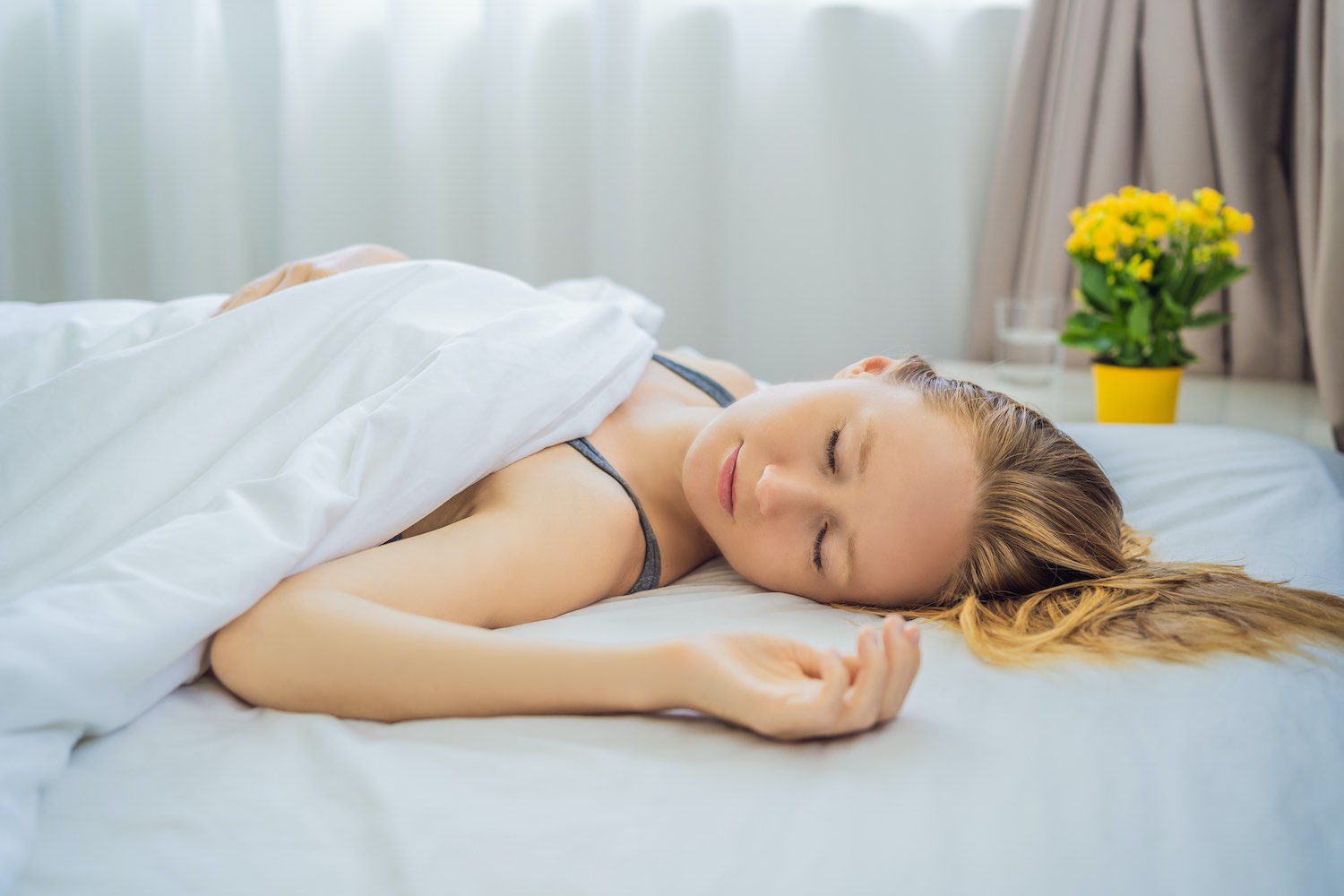- Posted on
- • Wellness
The Benefits of Sleeping Without a Pillow
- Author
-
-

- User
- Aira Nicole
- Posts by this author
- Posts by this author
-

Image Credit: Shutterstock / Sleep Foundation
When it comes to sleep, everyone has their own set of preferences. Some people can't go to bed without several pillows, while others prefer a minimalist approach. Interestingly, sleeping without a pillow offers several health benefits that are often overlooked.
The Impact of Sleep Positions
Before delving into the benefits of sleeping without a pillow, it's important to understand the common sleeping positions and how they affect your body. While many people rely on pillows for comfort, it can sometimes lead to misalignment in the spine and contribute to various health issues.
Common Sleep Positions:
- Back Sleepers: Often require a thinner pillow to maintain spinal alignment.
- Side Sleepers: Usually need thicker pillows to fill the gap between the head and shoulder.
- Stomach Sleepers: Often benefit from no pillow, as using one can lead to neck strain.
Preventing Flat Head Syndrome in Infants
One of the most significant benefits of sleeping without a pillow is its potential to prevent Flat Head Syndrome in infants. Flat Head Syndrome can occur when a baby lies in one position for an extended period, leading to an alteration in the shape of their head.
By allowing infants to sleep without a pillow, parents can help keep their baby's head more evenly shaped. This enables the skull to maintain a more natural form, promoting healthy head development during those crucial early months.
Improving Posture
Another compelling reason to consider this sleeping arrangement is its positive impact on posture. When individuals sleep without a pillow, their spine and neck align in a more natural and straight position.
This alignment leads to a more extended period of spinal health, especially in the neck and lumbar regions. Many people who experience poor posture throughout the day may find sleeping without a pillow to be a simple yet effective way to enhance their overall body alignment.
Ensuring Proper Spinal Alignment
It's essential to note that while sleeping on your stomach, it could be beneficial to place a pillow under your hips to support the natural curve of your spine. This small adjustment allows you to maintain better spinal alignment while reaping the benefits of not using a traditional pillow for your head.
Reducing Neck and Back Pain
In conjunction with improved posture, sleeping without a pillow can also help prevent neck and back pain. Many individuals struggle with discomfort in these areas, often due to improper sleeping positions and the use of unsuitable pillows.
When the neck is forced into an unnatural angle by pillows, it can lead to inflammation, stiffness, and chronic pain. By eliminating the pillow, the neck can rest in its natural position, decreasing the likelihood of pain and discomfort.
When the body is properly aligned and relaxed during sleep, you may find that you wake up feeling more refreshed and pain-free.
Minimizing Allergies
Dust mites, pet dander, and other allergens tend to accumulate in bedding and pillows. For those sensitive to such allergens, sleeping without a pillow can greatly reduce allergen exposure during the night.
When your head is not in contact with a typically dust-laden pillow, the chance of experiencing allergy symptoms diminishes significantly. This simple change may result in improved breathing during sleep, leading to a more restful night.
Preventing Acne and Facial Wrinkles
Another often-overlooked benefit of sleeping without a pillow is its potential effect on skin health. Traditional pillows can accumulate oils, dirt, and bacteria over time, which can transfer to your skin as you sleep.
This contact can contribute to breakouts and exacerbate conditions such as acne. Furthermore, resting your face against a pillow can create pressure points that may promote the formation of facial wrinkles over time.
By opting for a pillow-free sleep, you eliminate exposure to these factors, potentially reducing the likelihood of blemishes and minimizing the risk of premature aging signs on your face.
The potential health benefits—such as preventing Flat Head Syndrome in infants, improving posture, alleviating neck and back pain, reducing allergies, and preventing skin issues like acne and wrinkles—make this practice an appealing option for those seeking healthier sleep habits.
If you have never tried sleeping without a pillow, it may be worth a few nights of experimentation to assess its impact on your well-being. A small change in your sleeping posture could lead to significant improvements in your health and comfort, allowing you to wake up feeling your best.